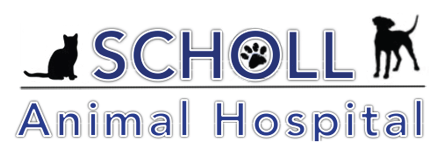Educational Articles
-
If they are well looked after, including proper diet and husbandry, bearded dragons are reasonably hardy animals. Common health conditions of pet bearded dragons include CANV, atadenovirus, metabolic bone disease, parasites, infectious stomatitis (mouth rot), and respiratory infections. Any change from normal is cause for concern and should be immediately evaluated by your veterinarian.
-
Bearded dragons have specific environmental requirements to thrive as our pets. This handout outlines their housing needs, including enclosure size, appropriate bedding, preferred accessories, and necessary lighting and temperature control.
-
Bearded dragons are well-known small to medium-sized lizards. They are currently considered one of the most popular pet lizards for all ages. Owners often refer to their pets as 'beardies'. This handout explains how they differ from other pets and provides tips for selecting a healthy beardie to keep as your pet.
-
Bearded dragons are susceptible to several health problems; understanding them will help you prevent them from occurring in your pet and know when to seek veterinary attention. Problems described in this handout include salmonellosis, avascular necrosis, tail rot, abscesses, and dystocia (egg binging).
-
Box turtles can be very fairly easy to care for type of turtle. It needs to be mentioned that there are several medical conditions that are known with box turtle ownership. Every box turtle owner should be aware that any swelling, change in energy level or food intake needs veterinary attention relatively soon.
-
The complete blood count (CBC) assesses different parameters of the cells in the blood including total number, appearance, size, and shape. Red blood cells, white blood cells, and platelets comprise the cellular component of the blood.
-
Collecting tissue samples for cytology or histopathology allow a pathologist to often give a diagnosis of the type of mass or tumor your pet has. Samples can be obtained by fine needle aspirate or biopsy, where a piece of the mass is cut out. Based on what the mass appears like under the microscope, the pathologist can often give a prognosis of how the tumor will behave.
-
Your veterinarian wants to keep your pet healthy and the fact is that people who are better informed take better care of their pets. Do not be overwhelmed by “medicalese”. Try your best to understand this foreign language and if you cannot quite decipher it, ask your veterinarian to speak more plainly.
-
Dexmedetomidine is a sedative/tranquilizer used primarily in cats and dogs as a pre-medication injection for anesthesia or for chemical restraint. It is also used orally in dogs for short-term anxiety management. The most common side effect is a low heart rate. Dexmedetomidine should not be used in patients with severe heart liver or kidney disease. It should be used cautiously in young, old, or weak animals. Consult your veterinary office immediately if you suspect a negative reaction or overdose.
-
All snakes are carnivores. Some eat warm-blooded prey (rodents, rabbits, birds), while others eat insects, amphibians, eggs, other reptiles, fish, earthworms, or slugs. Live prey should not be fed to snakes. Snakes can be offered thawed, previously frozen prey, or freshly killed prey. Smaller or younger snakes usually eat twice each week, while larger, more mature snakes typically eat once every week or two.

